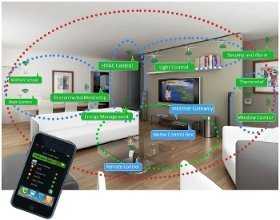How to Claim Tax benefits from HRA
 House Rent Allowance [HRA] is given by the employer to the employee to meet the expenses in relation to the rent of the accommodation which the employee might have to take for his residential purpose. The HRA so paid to the employee is taxable under the head “Income from Salaries” to the extent it so not exempt u/s 10(13A) of the Income Tax Act.
House Rent Allowance [HRA] is given by the employer to the employee to meet the expenses in relation to the rent of the accommodation which the employee might have to take for his residential purpose. The HRA so paid to the employee is taxable under the head “Income from Salaries” to the extent it so not exempt u/s 10(13A) of the Income Tax Act.
If your company pays you, annually a basic salary and DA of Rs.8,00,000 and HRA of Rs.4,00,000, apart from other taxable perks and allowances worth Rs.3,00,000 and you pay an annual rent of 480000/-.
You would be eligible to claim exemption in respect of HRA under Section 10(13A) on the basis of the least of the following three amounts:
Annual rent paid (Rs.4, 80,000) in excess of 10% of your basic salary and DA (Rs.8, 00,000), that is Rs.4, 00,000 (4, 80,000 – 80,000).
HRA received from your employer, that is Rs.4, 00,000.
40% of your Basic Salary & DA (Rs.8, 00,000), that is Rs.3, 20,000.
Thus, out of the HRA of Rs.4, 00,000 received by you, Rs.3, 20,000 can be claimed exempt, and the rest has to be included in your gross total salary.
In a very interesting case, which decided the question “Can a salaried employee legitimately claim the benefit of exemption for House Rent Allowance (HRA) received from his employer, under Section 10(13A) of the Income-tax Act, even in a case where the payment of house rent has been made by him to a member of his own family, say his wife or his father, who is owner of the house and who is also living with him in the same house?”
Very recently, the Ahmedabad Bench of the Income-tax Appellate Tribunal has, in the case of Bajrang Prasad Ramdharani vs. ACIT (37 taxmann.com 186), also granted its seal of approval to this view, by deciding this very issue in favour of the taxpayer. The Tribunal noted that in the present case, admittedly, the AO had given a finding of fact that the taxpayer and his wife were living together as a family. Therefore, it could be inferred that the house owned by wife was occupied by the taxpayer husband also. It was also a matter of record that the husband had paid cheques for the rent which were duly credited in the bank account of the wife. The ITAT, therefore, held that, “in our considered opinion, the taxpayer has fulfilled the twin requirements of the provision, i.e. occupation of the house and payment of rent. Under these circumstances, the taxpayer is entitled for exemption u/s.10 (13A) of the Act.”
The implication of this is a taxpayer can pay rent to his family members and yet be able to claim HRA exemption.
The Central Board of Direct Taxes has now made it mandatory for employees to submit PAN of the landlord to the employer if the annual rent exceeds Rs. 1,00,000 per annum and such an employee is claiming House rent exemption (HRA) under section 10 (13A) of Income Tax Act.
Vikram Ramchand, Founder at MakeMyReturns.com
Vikram is a serial entrepreneur – having successfully founded two consumer internet companies. His latest venture is makemyreturns.com, an online tax filing and planning service. He holds a Bachelors in Computer Science from the Georgia Institute of Technology and an MBA from the London Business School.
The views expressed in this article are the author´s own.







